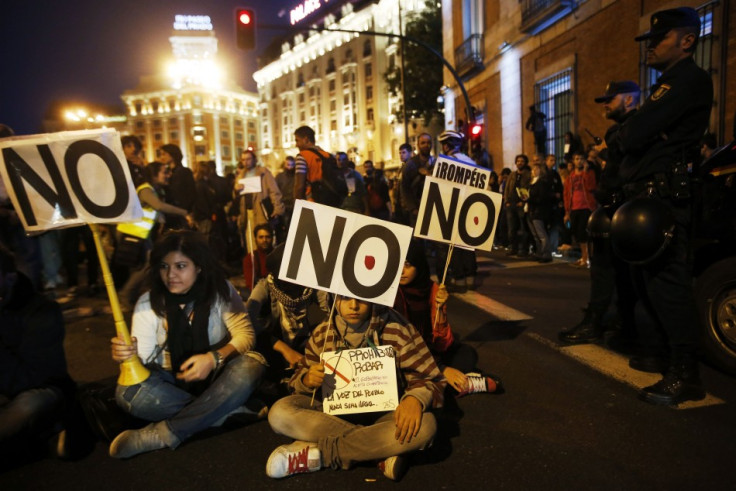Spain to Cut Pensions and Hike Taxes Despite Protests [VIDEO]

The Spanish government is gearing up to tighten its belt in spite of the mounting protests in Madrid, which have seen police fire rubber bullets at angry demonstrators.
Prime Minster Mariano Rajoy is due to announce his budget later, and reports suggest he will implement a series of austerity measures which are preconditions of Spain's bailout by the eurozone.
"We know what we have to do, and since we know it, we're doing it. We also know this entails a lot of sacrifices distributed ... evenly throughout the Spanish society," Rajoy said in New York earlier.
Spain's 2013 budget is expected to include restrictions on early retirement, fresh taxes on stock transactions, and abolition of several existing tax exemptions. European policymakers and financiers are said to be keen on Rajoy cutting pensions.
"To be credible with the markets, which is the government's ultimate goal, it would seem hard to avoid touching retirement pensions, which account for 25 percent of total spending," Juan Ignacio Conde Ruiz, Deputy Director of the Foundation of Applied Economic Studies, told News International.
However, sources in Madrid suggest Rajoy may go lighter on some of the proposed measures, given the escalation of anti-austerity protests in Spain this week.
On Tuesday Scores of angry protesters marched in Madrid to demonstrate against the government's economic policy. The demonstrations culminated in a throng of demonstrators attempting to storm the lower House of Parliament, prompting the police to use rubber bullets and baton charges against them.
The demonstrators, who call themselves 'indignados', also staged a sit-in during the protest, demanding Rajoy's resignation.
Those taking part in the protest say the Spanish public are already struggling to cope with a raft of tax hikes and spending cuts introduced in July. Despite these cuts, Spain is most likely to miss its target of reducing the budget deficit to 6.3 percent of GDP by the end of 2012.
People who are familiar with the issue also believe Rajoy's budget will struggle to overcome widespread cynicism. A member of the Prime Minister's own party told Reuters:
"On paper they can make it all add up, but it will be hard to make the budget credible given all the reasonable doubts on the deficit target. It will be really tough to make the markets buy it."
Spain is trying to come out of a double-dip recession and 25 percent unemployment.
© Copyright IBTimes 2025. All rights reserved.






















